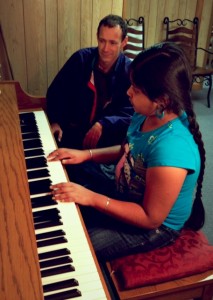 When it comes to education, STEM (Science, Technology, Engineering, Math) is the new buzz word. There is a good reason for it. The US is lagging behind many European and Asian counterparts when it comes to these subjects. And without strong STEM programs our future ability to innovate and compete in the global marketplace may be affected.
When it comes to education, STEM (Science, Technology, Engineering, Math) is the new buzz word. There is a good reason for it. The US is lagging behind many European and Asian counterparts when it comes to these subjects. And without strong STEM programs our future ability to innovate and compete in the global marketplace may be affected.
The striking reality is that when faced with budgetary issues music and art education is the first to go. recent changes to the Ohio Education Standards now requires just 2 semesters of art education sometime during the students 7th to 12th year. In the age of increased standardized testing teachers are being forced to teach to the test more than they are empowered to inspire their students.
Music education has long been thought of as a separate compartment in the overall curriculum. However study after study confirms that music education directly affects all other subjects as well. Students getting music education do better in math, science, and reading. They are on average, more creative and are able to solve problems better than students not receiving a music education. In one study, music education even helped underprivileged children catch up with their language benchmarks and exceed them.
Implementing music education with piano lessons, strings, guitar, or anything your child shows interest in will provide a tremendous benefit well beyond the knowledge of playing an instrument. The reason is simple: Children who study music know how to work together collaboratively in groups, to value the efforts of all team members, and that every person has the ability to make a worthwhile contribution to the group’s work.

